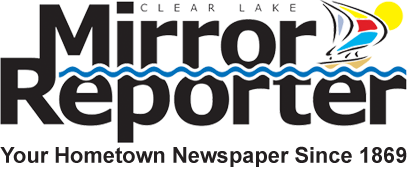‘Conversations’ group offers diversity in educational approach
(Above) Classical Conversation students get ready for a lesson from a parent/tutor at the Zion Lutheran Church location. The group, which meets on Tuesdays, uses three keys to education: Classical, Christian and Community. -Reporter photo by Chris Barragy
by Michelle Watson
Alternatives to traditional schooling are growing in popularity across the nation. In Clear Lake, Classical Conversations, a group designed to support the homeschooling community, is attracting a wide variety of students.
Classical Conversations (CC for short), now has 97 students participating in weekly sessions. CC has outgrown its original location at the Church of Christ and in August expanded to Zion Lutheran Church.
“CC was designed for homeschoolers, but within that, many of our students also participate in public school sports, music, clubs and classes via dual enrollment,” said Emily Forsyth, one of the directors.
Classical Conversations is a nationwide program that was started in 1997 by Leigh Bortons. CC began in North Iowa in 2010. Forsyth, of Clear Lake, brought the program to Clear Lake in 2014. She is the foundation director at the Church of Christ location, while Brooke Hinders, of Garner, is the director at the Zion location. Students from Mason City, Garner and Forest City, join the Clear Lake students. Parents of younger students also attend.
“Our family started Classical Conversations because it is an established method of educating, which progresses in both rigor and content as the student matures,” said Forsyth. “Through Classical Conversations, the bulk of a student’s education happens at home with their parents as their primary educators, but the weekly ‘Community Day’ occurs on Tuesdays and brings students together.”
“Classical Conversations shares the love of learning through a Christian world view and fellowship with other families,” said Hinders. “Our families thrive using three keys to a great education: Classical, Christian and Community,” said Hinders.
Classical means students begin with a grammar
[wlm_nonmember]To read more of this article, please login or sign up for our E-Edition[/wlm_nonmember][wlm_ismember]
stage by memorizing the words and terms associated with a subject. Once they memorize, they begin to ask good questions and move into the dialectic stage. The final stage is the rhetoric stage, in which students know the subject well enough to teach others, write original essays and solve difficult problems.
The Christian aspect looks to deepen and inform the Christian world view.
“We believe a great classical education leads students to discover how each subject relates to each other in glorifying God in harmony with each other,” said Forsyth.
Community brings parents and students together. Support, fellowship and relationships are important aspects.
“The CC community is very important because it allows us to have a support system that encourages each other along our homeschool journey. It’s also very beneficial for the students to be able to create lasting relationships while joyfully learning together and keeping Christ in the center as they strive to know God and make Him known,” said Hinders.
The Grammar program, which is called Foundations, is for ages four-11 years. Parents attend with their children. Foundations is taught by tutors, who are parents modeling classical education for the other parents and students, so they can go home and continue to model for their children. Foundations teaches history, Latin, science, art, English, geography, math, and timeline of the world. Science experiments, public speaking and memory work are also part of the learning environment.
The Dialectic program is called Essentials, which is for fourth-sixth grade students and their parents. Students continue to memorize, but their focus becomes discussion. Students diagram sentences, write essays and drill math facts.
“This is a beautiful way for our family to learn a lot of things about the world together at the levels my kids are at,” said Amelia Molencamp, of Clear Lake, and parent to four boys. “The programs meet my children where they’re at and I’m learning right along with them.”
The Rhetoric program is called Challenge, and is for middle and high school students. These seminars integrate the subjects of Latin, math, literature, government, philosophy, science, history and theology. Students learn to persuade and influence. Challenge students meet in classes of 21, and are facilitated by trained, paid tutors who are also homeschooling parents. Parents are welcome, but are not required to attend.
“Being a Challenge student, I like seeing how all the subjects work together to give me clarity in interpreting the world around me,” said 16-year-old Ethan Forsyth, a Challenge 2 student. “When considering current events, books I read, people I encounter, or problems I run into, I have a sense with which to formulate my beliefs. I have learned to argue wisely and think critically through my classes.”
“We are so blessed in Clear Lake to have many thriving options for our children’s education,” said Molencamp. “There is the public school, Clear Lake Classical and homeschooling.”
“Homeschooling is growing and we at Classical Conversations are happy to meet the needs of families in the area,” said Forsyth.
Forsyth and Hinders are happy to answer any questions about Classical Conversations. Forsyth can be reached at 641-494-8508 and Hinders at 641-430-2664.
[/wlm_ismember]
Clear Lake Mirror Reporter
12 N. 4th St.
Clear Lake, IA 50428
Telephone: +1 (641) 357-2131
Submissions
Mid-America Publishing
This newspaper is part of the Mid-America Publishing Family. Please visit www.midampublishing.com for more information.
